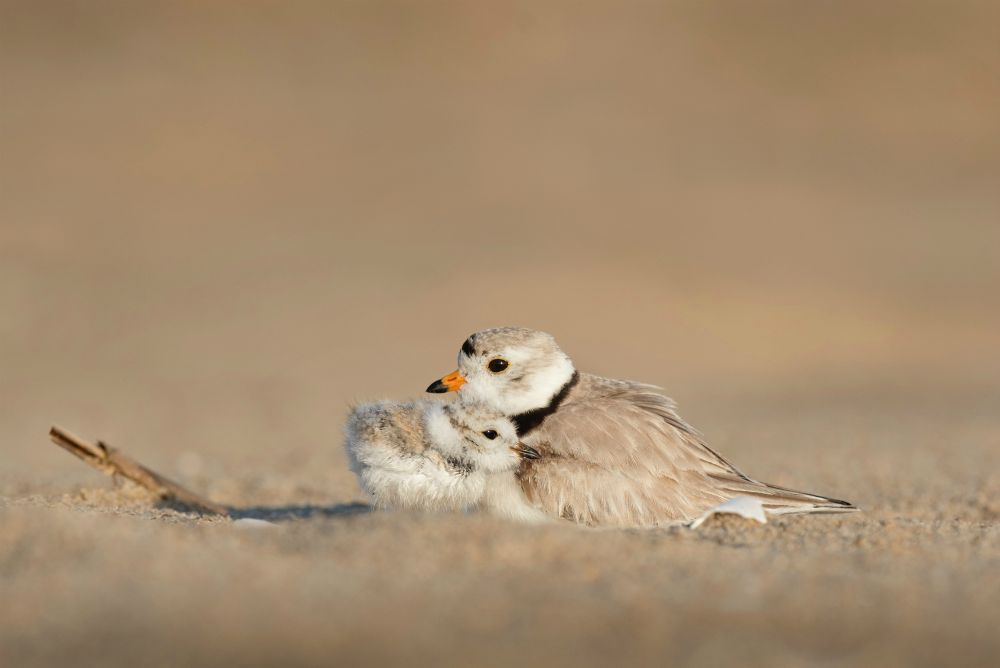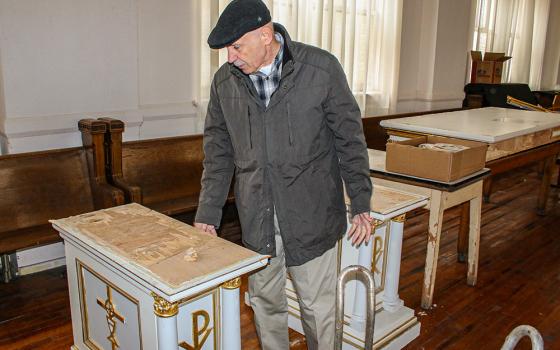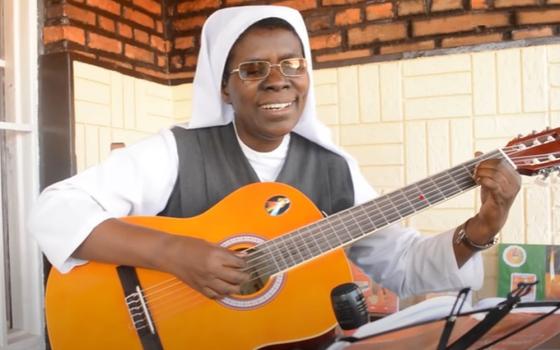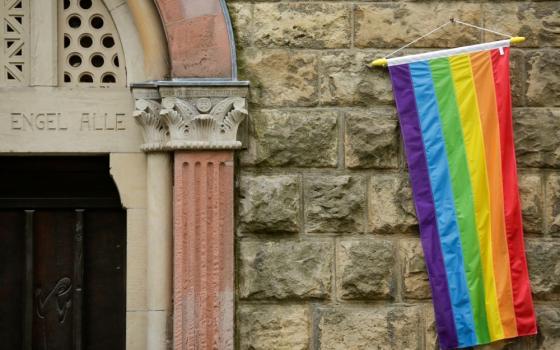
(Unsplash/Ray Hennessy)
What I'm thinking about in these days before Ash Wednesday is how most of what I have learned about a right relationship with God has come from taking care of small children. These days the smallest child in my care is 13 months old. We have had a standing date each Tuesday since last August as her mother goes off to teach.
It is a curious thing to be God's stand-in, but that is just what a child's caretakers become, the rough sketch of a god pointing the way to the true and eternal God. Like the lumpy rag doll "baby" that my granddaughter rocks and clutches to her chest before tossing it to the floor, I am a badly stitched and grimy approximation of the divine. But what I learn from these encounters is not lessons in being God, but lessons in being God's child. These are lessons I find it easy to forget, though I have cared for many children, five of them on a daily basis. So, blessedly, I begin again to learn.
The baby is curious and bold, but she makes sure we are never far from one another. She turns and watches for me, even as she is occupied shaking the plastic bottle full of beans or pulling herself up on the chair or dumping the furniture from the dollhouse onto the floor. If I disappear from her sight, she calls out to me, "Ma-Maw, Ma-Maw." (Though on her tongue, so new to speech, it comes out a deep, "Mo-Mo." Still, as St. Paul reminds us, in the right ears, even our groanings are perfectly understandable.) Her cries are not frantic. She calls out, and waits for my reply, "Ma-Maw's right here." She is simply maintaining what she knows to be our natural connection, even if Ma-Maw is standing at the sink finishing the morning dishes, while she explores the wilds of the breakfast nook.
But if she grabs the floor lamp and it falls on her head or if she pulls up on a chair and loses her grip, tumbling to the floor, she calls my name through sobs. That is a summons for comfort, for assurance that she is safe — safe not because lamps don't go spinning into space, which they certainly do — but safe because I am near. She calls for me as a reminder that she is never alone in the painful and the unpredictable, even as pain and unpredictability assail her.
My granddaughter expects relationship. She likes to sit with me, as still as we can be, to watch the birds come to the feeder outside the window. She coos like a mourning dove and waits for me to caw like an American crow or whistle, sort of, like an American robin. It is a collection of common birds around my feeders: no bright cardinals ever and no tropical-hued Western tanagers except for a few days in late spring. Always the same landscape, yet she is never bored. She watches, her eyes intent on the birds, a small finger pointing at one, then the other, as though there was something fresh to be discovered each time we see them. Which of, course, there is.
Advertisement
She never wearies of monotony, but relaxes into routine. She likes the same meals and snacks. "Ham," she says reverently about her favorite meat. "Apple," she says firmly about her favorite fruit, clapping with delight when these daily treasures appear on the high chair tray. She likes to see the same toys come out with each visit, wants her baby and a Teddy bear for each nap, likes me always to say, "Boom!" as I ease her head gently to the floor when it's time for a diaper change. "Boom!" always makes us laugh. And she never tires of being reminded that she is beloved. "Who loves you?" I ask as we begin the litany. These are the names she carries, beginning with "Papa," and "Mama," those two words whispered with the reverence known in every age and time before the holy.
She reaches out for me: To have a cuddle, to travel to the next room or the backyard, to explore again my nose and ears and hair and mouth and, best of all, the forbidden terrain of my glasses. It never occurs to her that I would turn away from her open and upraised arms. So she is never hesitant or afraid to reach.
She moves a lot and laughs often, living with joy in her body.
And, like Adam, my granddaughter takes it as her work to name the world, sometimes with words, sometimes with signs, sometimes with her chubby finger pointed at the baby or the squirrel or the car ("Vroom! Vroom!") speeding past. Each of them gets a wave and, often, a blown kiss.
She doesn't care where we go, since almost every destination is new to her, strange, foreign. The important thing, the only thing, is that I am with her.
I have passed the age of weddings and baby showers and have reached the age of funerals. Weekly, it seems, my husband and I get news of a friend or colleague who has died. We know that our time, always certain, is nearer. So even as I try to teach my grandchild, I am trying to learn from her. I am trying to live with curiosity and boldness, all the while keeping a close connection to God. I am trying to live in relationship with God. I am trying to find the holy in the daily, the wonder in monotony. I am trying to live with joy in my body. I am trying to move more. I am trying to look at the world closely enough to see and name what I see. I am trying to call out to God in my fear and pain with the certainty my granddaughter has that help will come. I am trying to reach out to God, my arms open. I am trying to learn that it does not matter where God takes me, in life or in death, as long as we are together.
[Melissa Musick Nussbaum's latest book, with co-author Anna Keating, is The Catholic Catalogue: A Field Guide to the Daily Acts That Make Up a Catholic Life.]
Editor's note: We can send you an email alert every time this column, My Table Is Spread, is posted. Go to this page and follow directions: Email alert signup.







